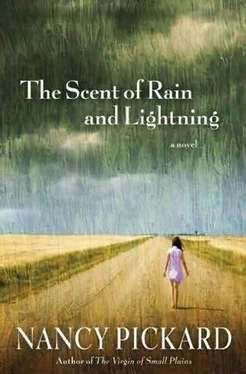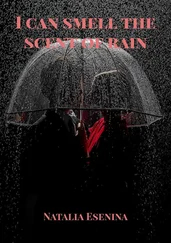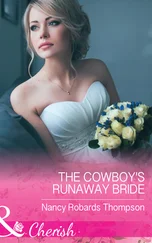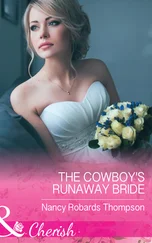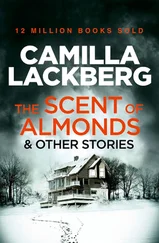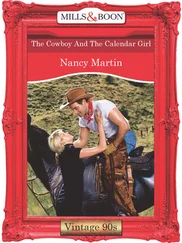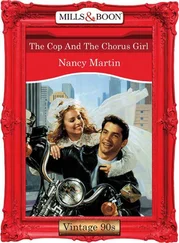“I need to get my thoughts together,” Meryl said. “I wasn’t ever expecting to have this conversation.”
Jody bit her tongue on the questions that sprang to it, and gave him his chance to get organized. She was almost relieved to wait, to delay the words she didn’t want to hear. She stared down at the top of the table and thought about how it must have looked bright and cheerful when her mom painted it. Now it was dingy. The old paint was bare in some places, bubbled in others-she brought her hands above the table and rubbed some of the rough places with her fingers-but she wasn’t ready to redo it. She had the superstitious feeling that if she did, her mother would never come back in any way, not as a living woman or a corpse. Everybody assumed her mother was dead, but there was a part of Jody’s brain-or her heart-that still held out hope. A bloody yellow sundress had been found in a truck, that was all. It didn’t have to mean she was dead, did it? The fact that not a single sign of her, anywhere at any time, had shown up in the last twenty-three years was taken as proof that Laurie Linder was truly gone, but her daughter lived in a fugue state, haunted by the slimmest of possibilities that her mother was alive.
Jody suddenly wanted her grandmother Annabelle in the worst way.
It made her heart hurt to think of what this was going to be like for her grandparents, having their son’s murderer so near, where they might run into him at any time. She knew they would worry for her sake, and that made it essential for her to get a good grip on herself.
She would not cause them more pain. Clasping her hands atop the table, Jody sat up straight in her chair. She looked at her uncles and felt such sympathy for them that it nearly undid her and started her tears again. This was going to be hard for everybody.
Meryl looked straight at her. “Tell me what you know about why Billy was convicted, Jody.”
She wasn’t expecting the question, but she focused and obeyed.
“Physical and circumstantial evidence,” she recited, having been taught it all when she demanded to hear it years ago.
“What physical evidence?”
“Hair in the guest room and a bathroom drain. Fiber from his socks, on the carpets.” She swallowed. “His hat in this kitchen.”
She kept her eyes on Meryl, forbidding herself from looking over to where Billy Crosby’s cowboy hat once had lain, stopping herself from wondering if the chair that had been turned over was the very one in which she sat now.
“What was the circumstantial evidence?”
“The cow. The arguments. The fences. The fight he got into with you guys at Bailey’s. The way he looked at Mom. How he tried to hit her.” Fury surged in to suffocate her sadness. She took a ragged breath and beat on the table with her fists. “I hate him! How can they let him go? How can they!”
“Calm down,” Chase ordered.
She threw him an infuriated look.
Meryl snapped his fingers to get her attention back. “What did all of that circumstantial evidence establish that was so damning to him at the trial?”
“A pattern,” Jody recited, answering by rote. “It formed a convincing pattern of events leading up to the crime.”
“Yes.” He sighed. “Well, here’s the bad news about the physical evidence. Hair and fiber comparisons are considered faulty science in some quarters now, and our governor’s office is one of them.”
A sickening, sinking feeling rushed through her.
“I didn’t know that,” she said in a near whisper, and then angrily, “Why didn’t I know that?”
“Most people don’t.”
“But you did, right? A lawyer would know. Why didn’t you say anything?”
“Because I think the science is fine. And because even without the physical evidence, there is still enough circumstantial evidence to support his conviction.”
“So what happened?”
Meryl glanced over at Chase, who still leaned silently against the counter, while Bobby banged around looking for Jody’s coffee and filters. Driven nearly mad by the clatter and tension, Jody yelled at him, “They’re in the left-hand drawer, Uncle Bobby!”
“I don’t have a left hand,” he growled.
It was a bitter reminder of one more thing Billy Crosby had done to them.
“This is where withholding evidence comes into play,” Meryl said, calling her attention back. “The county attorney withheld evidence from Crosby ’s defense attorney-”
“What evidence?”
“He had witnesses who said Billy lost his hat at Bailey’s and that it was your mom who picked it up.”
“What?”
“Hold on. There’s more. The county attorney also did not reveal that Doc Cramer-remember him, used to be our vet?-told a deputy that your dad had told him about some men he’d confronted in a car passing by the ranch the day before his murder.”
“What men?”
“Strangers. One of them threw a lit cigarette out of their car, and your dad got so mad he forced them to the side of the highway and then gave them holy hell for doing it. Your dad told Doc Cramer they looked like tough customers.”
“So what?”
“So they could have been suspects, Jody.”
“Oh, bull, Uncle Meryl!”
“Bullshit,” Bobby muttered at the sink.
“No doubt,” Meryl agreed, “but prosecutors are required by law to share exculpatory evidence with the defense, and they didn’t do it.”
“Why not?”
Meryl sighed. “So it couldn’t be used to try to establish reasonable doubt.”
Jody stared at him, and after a moment, she said, “Okay, I get it. I get all that. But none of that proves Billy didn’t do it.”
Meryl smiled slightly in approval of her quick analysis.
“Goddamn right he did it,” Bobby muttered, his back still turned.
“Why now?”
“What?” Chase interrupted.
She turned to look at him. “Why is all this coming out now? Why is this happening now?”
“Because that boy of his got out of law school, that’s why.”
“Collin.” She felt her face flush at the memory of him.
Over the years since that day at the Rocks, she had thought of him more often than she wanted to. Each time, she’d had to fight the impulse to keep thinking about him. Now she felt a molten flash of resentment and fury and humiliation as she recollected those moments and the “sorry” he had claimed to feel for her. She tasted gall as she thought, So this is his idea of sorry.
“This is really Collin Crosby’s doing?” she asked them.
“He went through law school with the governor’s son,” Meryl told her. “And apparently the young son of a bitch has been active in political campaigns since he was old enough to figure out how to get what he wants.”
“Paving his way,” Chase said.
“Working up to this,” Meryl agreed.
Jody thought about the boy she remembered-how quiet and self-contained he seemed, how carefully he moved through the streets of Rose and the halls of its schools, how hard he studied and what good grades he got, the scholarships he earned, the fact that he could have gone to college and law school in other places, but stayed in Kansas to do it. She thought about the day she’d seen him at Testament Rocks, about his climbing gear, his athleticism, his obvious ambition to surmount obstacles in literal and figurative ways. If any boy was going to grow up to be the man who accomplished what Collin had achieved on this day, it was that boy. Now, too late to stop him, it was clear what he was after all the time.
“Didn’t we-us, our family-get any say in this at all?”
The uncles exchanged glances again. “We got a hearing with the governor,” Meryl told her. “There’s not much statutory guidance on these things, so I’m not sure he had to do it, but it didn’t make any difference anyway.”
Читать дальше
